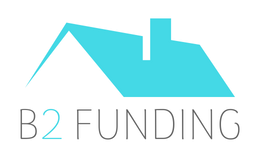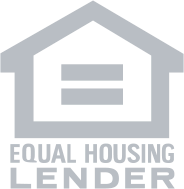Refinancing into A Conventional Mortgage
Sometimes you can sign up for a mortgage thinking that it's a good deal, but later you realize that there are better options on the market. The good news is that you may be able to refinance your mortgage, taking out a new loan with a better interest rate or other conditions and using that loan to pay down your existing mortgage. The issue, however, is finding a better loan in order to refinance. If your mortgage is a federal government-backed loan, such as an FHA or VA loan, then you have the option of switching to a conventional mortgage. This type of loan can offer you many benefits, but you should also be aware of the disadvantages.
What is a conventional mortgage?
A conventional mortgage is one that is not guaranteed or insured by federal government agencies such as the Federal Housing Administration (FHA), Veterans Administration (VA) or the Rural Housing Service (RHS). Conventional mortgages can either be conforming or non-conforming. Conforming mortgages follow the guidelines of Fannie Mae or Freddie Mac. Non-conforming mortgages or jumbo loans exceed the maximum loan amount required by Fannie Mae or Freddie Mac.
Benefits of refinancing into a conventional mortgage:
There are a number of benefits of conventional mortgages, and refinancing into such a mortgage from, for example, an FHA loan can often be worthwhile. Conventional mortgages usually offer lower interest rates than other mortgages. This is often a result of the lenders being able to bundle these loans and sell them in a secondary market, as well as the reduced credit risk by lenders requiring larger down payments. By refinancing into a conventional mortgage with a lower rate of interest, you may be able to reduce your monthly repayments and the amount that you will need to repay during the life of the loan. With a conventional loan, mortgage insurance is required only up to the end of the first two years of the loan. By contrast, mortgage insurance on an FHA mortgage is required for five years. The lesser amount of time that you need to pay for insurance, the more you will save. Additionally, with a large enough down payment on a conventional mortgage, you may be able to avoid having to take out private mortgage insurance. Also, if you have difficulty in obtaining insurance, conventional mortgage lenders may be able to self-insure the loan. Conventional mortgages also often require a larger down payment than FHA loans. This means that you will immediately have greater equity in your home when you begin your mortgage. If there is a decline in the housing market, your higher equity in the home helps to safeguard your home against a foreclosure if you cannot meet your mortgage repayments. The flexibility of conventional loans also means that lenders may be willing to negotiate their fees, allow collateral other than the real property being mortgaged and agree to finance personal property with the loan. If the loan is to be held in a portfolio, the appraisal will only need to meet the lender's guidelines, rather than the comparatively stricter guidelines of the FHA or VA. Moreover, if you took out a conventional mortgage to begin with (rather than looking to refinance into one), you may be able to borrow more money with that conventional mortgage.
Disadvantages of refinancing into a conventional mortgage:
With a conventional mortgage, you will require a hefty down payment, as well as a good credit score in order to find a loan with the best interest rates. Another disadvantage of conventional mortgages is the lender's freedom to determine origination fees and other costs, which may be higher than those of other loan programs. At the time of your loan application, some lenders may also require you to pay non-refundable application or processing fees. Many conventional mortgages have fixed rates, which means that you won't be able to take advantage of interest rates falling in the marketplace. Despite these disadvantages, conventional mortgages offer many benefits, and it is worthwhile seeing what you would save by refinancing into a conventional mortgage.
What is a conventional mortgage?
A conventional mortgage is one that is not guaranteed or insured by federal government agencies such as the Federal Housing Administration (FHA), Veterans Administration (VA) or the Rural Housing Service (RHS). Conventional mortgages can either be conforming or non-conforming. Conforming mortgages follow the guidelines of Fannie Mae or Freddie Mac. Non-conforming mortgages or jumbo loans exceed the maximum loan amount required by Fannie Mae or Freddie Mac.
Benefits of refinancing into a conventional mortgage:
There are a number of benefits of conventional mortgages, and refinancing into such a mortgage from, for example, an FHA loan can often be worthwhile. Conventional mortgages usually offer lower interest rates than other mortgages. This is often a result of the lenders being able to bundle these loans and sell them in a secondary market, as well as the reduced credit risk by lenders requiring larger down payments. By refinancing into a conventional mortgage with a lower rate of interest, you may be able to reduce your monthly repayments and the amount that you will need to repay during the life of the loan. With a conventional loan, mortgage insurance is required only up to the end of the first two years of the loan. By contrast, mortgage insurance on an FHA mortgage is required for five years. The lesser amount of time that you need to pay for insurance, the more you will save. Additionally, with a large enough down payment on a conventional mortgage, you may be able to avoid having to take out private mortgage insurance. Also, if you have difficulty in obtaining insurance, conventional mortgage lenders may be able to self-insure the loan. Conventional mortgages also often require a larger down payment than FHA loans. This means that you will immediately have greater equity in your home when you begin your mortgage. If there is a decline in the housing market, your higher equity in the home helps to safeguard your home against a foreclosure if you cannot meet your mortgage repayments. The flexibility of conventional loans also means that lenders may be willing to negotiate their fees, allow collateral other than the real property being mortgaged and agree to finance personal property with the loan. If the loan is to be held in a portfolio, the appraisal will only need to meet the lender's guidelines, rather than the comparatively stricter guidelines of the FHA or VA. Moreover, if you took out a conventional mortgage to begin with (rather than looking to refinance into one), you may be able to borrow more money with that conventional mortgage.
Disadvantages of refinancing into a conventional mortgage:
With a conventional mortgage, you will require a hefty down payment, as well as a good credit score in order to find a loan with the best interest rates. Another disadvantage of conventional mortgages is the lender's freedom to determine origination fees and other costs, which may be higher than those of other loan programs. At the time of your loan application, some lenders may also require you to pay non-refundable application or processing fees. Many conventional mortgages have fixed rates, which means that you won't be able to take advantage of interest rates falling in the marketplace. Despite these disadvantages, conventional mortgages offer many benefits, and it is worthwhile seeing what you would save by refinancing into a conventional mortgage.


